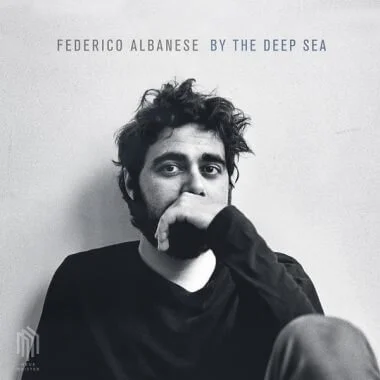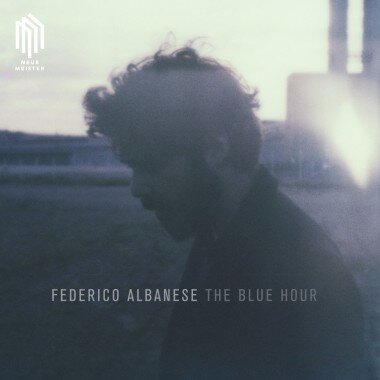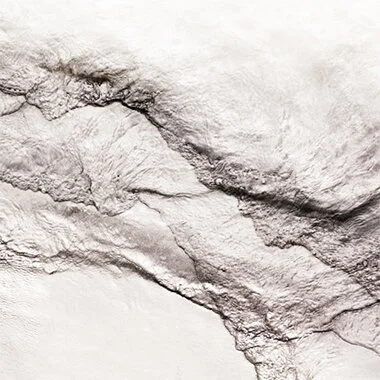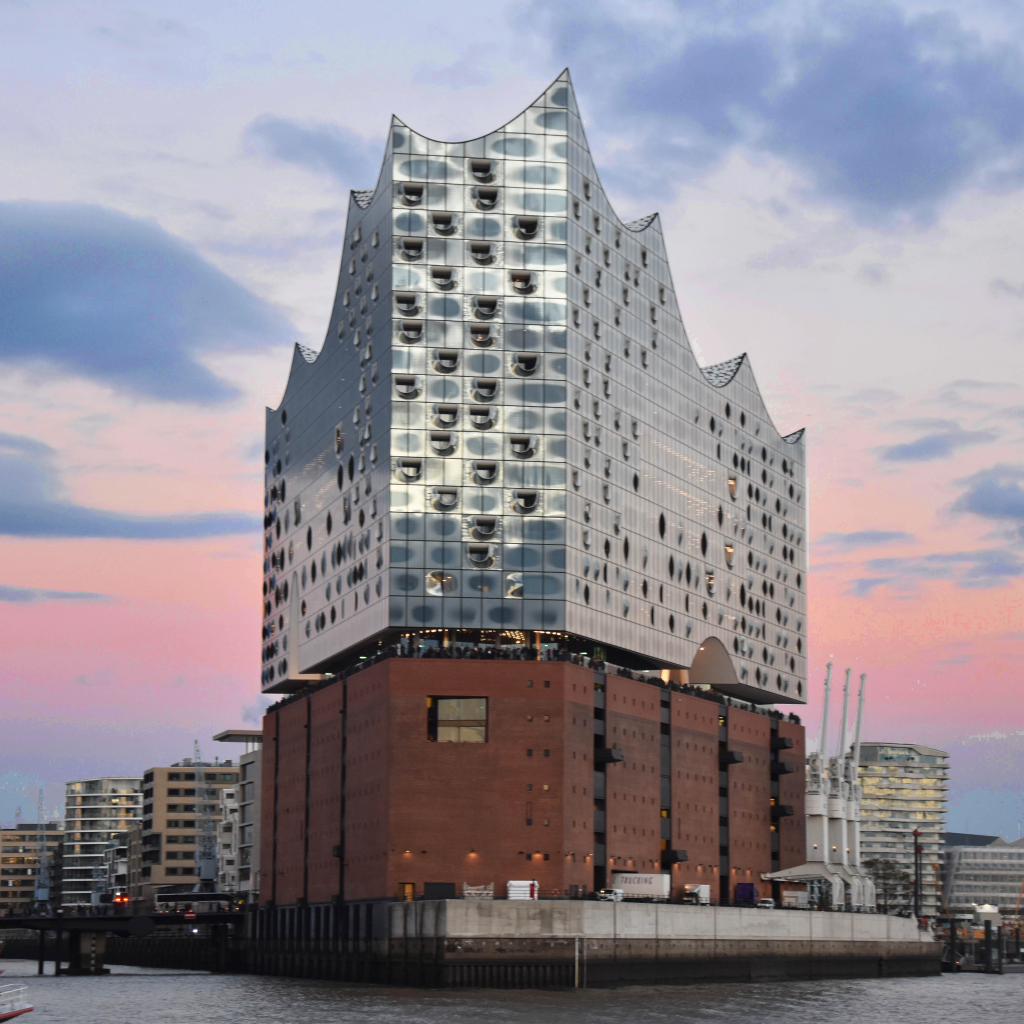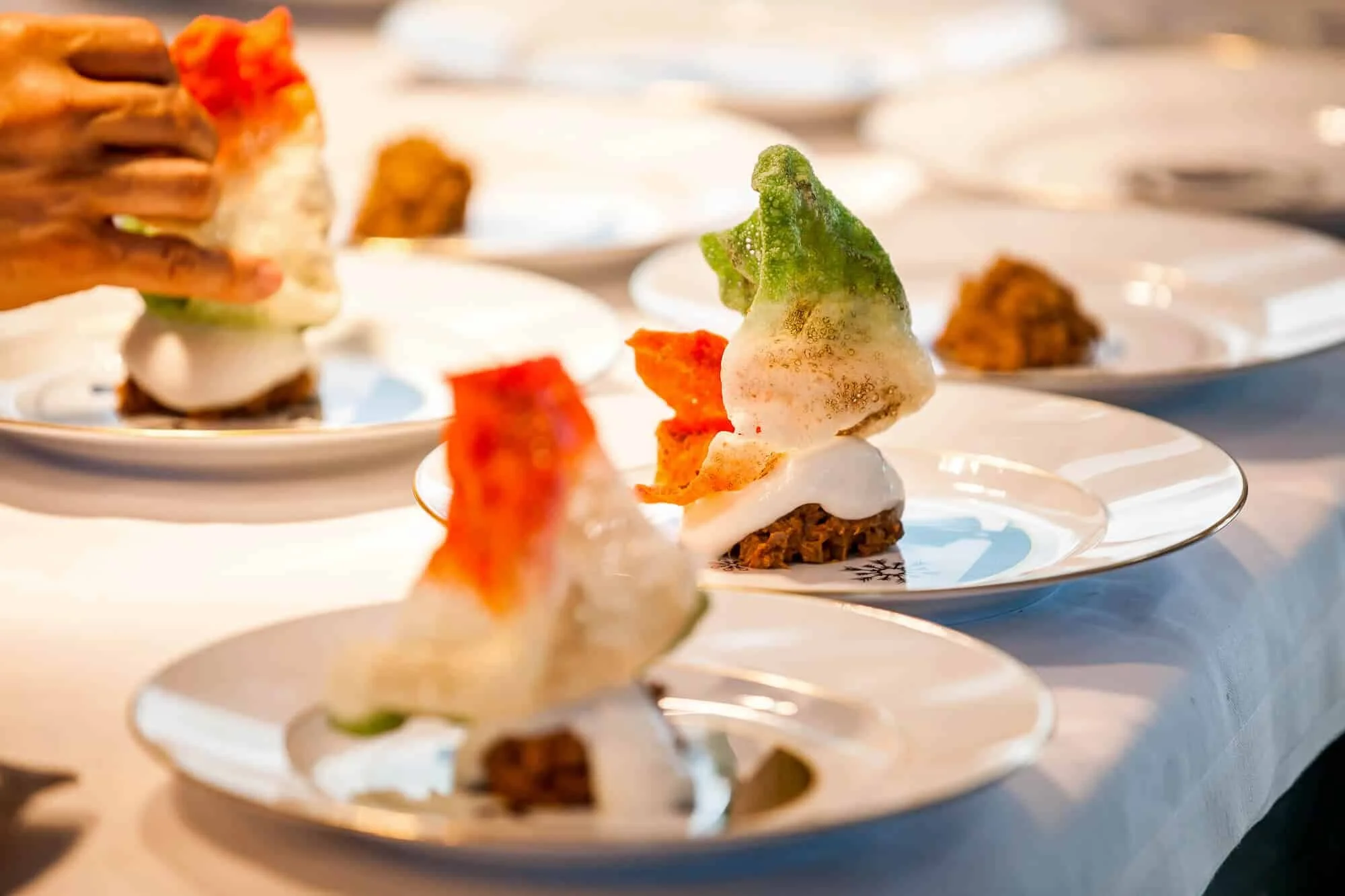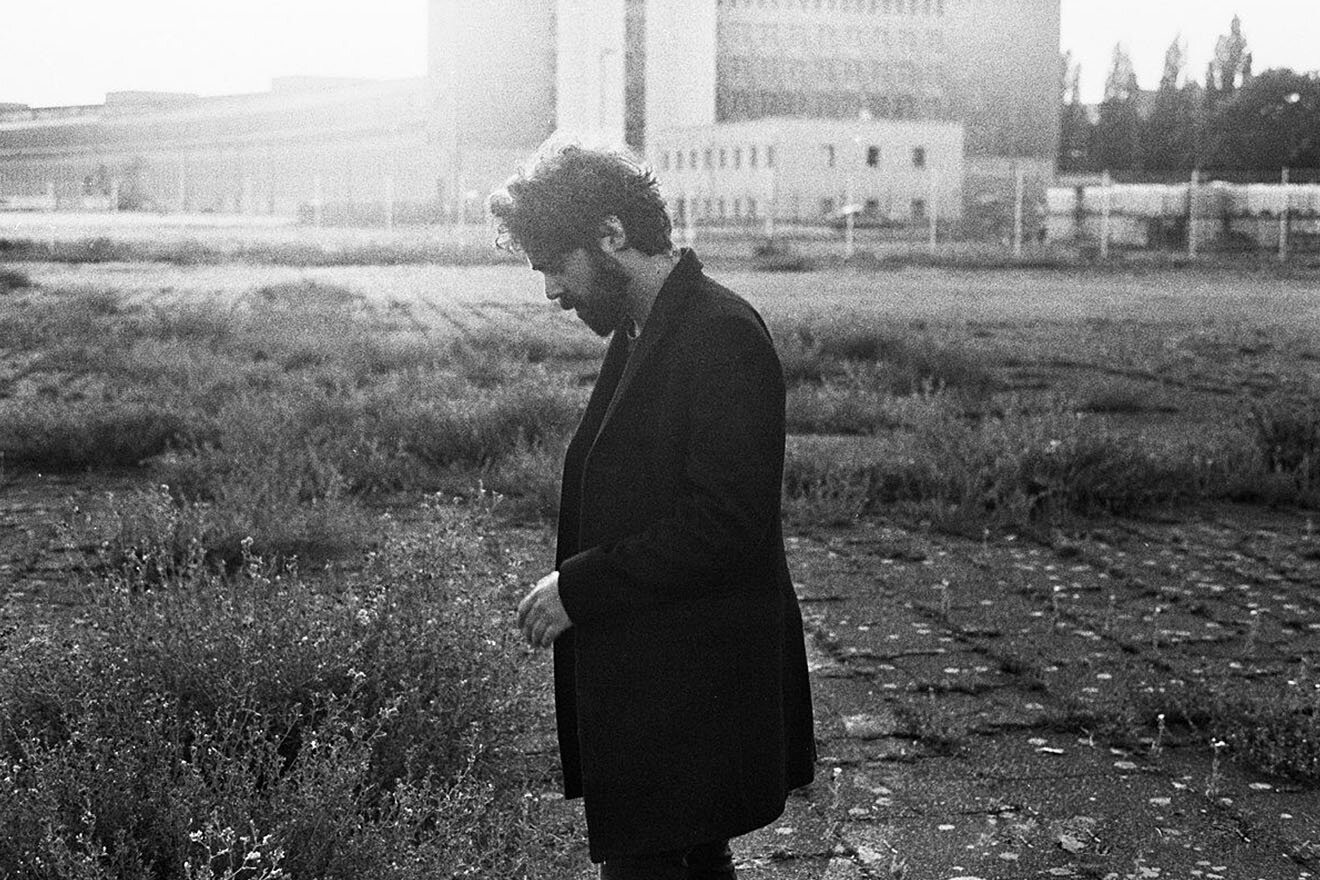
FEDERICO ALBANESE
SOMETIMES I THINK THAT MUSIC IS A KIND OF A VEHICLE THAT I’M RIDING WITHOUT THINKING.
By the Deep Sea, Federico Albanese (2018)
The Blue Hour, Federico Albanese (2016)
The Houseboat and the Moon, Federico Albanese (2014)
You were born in Milan, a city with a great variety of architecture. Does the urbanity of Milan works as an inspiration to write music?
In a way it probably did but it’s hard to say because I left Milan when I was 28. Back then, I never thought about the influence of space around me. Milan, however, is built in a way that is not that easy to understand. The city is sort of spiral where everything is falling down to the center. And despite the compact structure, there are a lot of people living there. I believe that’s one of the reasons I moved out eventually. I felt a bit compressed and I’m not the only one who thinks of it this way. My mother has lived her whole life in Milan until she became 70 years old and moved to a house at the seaside in Liguaria close to Genova. It is a place you can’t drive to and instead you have to walk 15 minutes. It’s beautiful. After all, Milan felt too much like a cage and I had to escape. When I arrived in Berlin there were 100’s of doors that opened up. I suddenly became part of a community of people that accepted me and my music.
Is there a specific place that feels extremely comforting to you? That feels like home and have every aspect to frame inspiration?
After all, nature is the most inspiring thing to me. It gives peace to my mind because it is just so true and honest. In a way we are all forced to live in cities because we want to work and have a structured live. We have to be part of these huge, massive, cement, smoky places but in the end, we’re not made for that. I’m now collaborating for a documentary which is called “The Twelve” and it is about twelve elders from twelve different communities around the world. They gather from Africa, Siberia, Peru, Mongolia etc. to New York where they pray and talk about what we should do to save our planet. It’s a very powerful, accurate and serious topic but there’s still so much amusement in this film. Some of them see a car for the first time and it is really fun to see how they react, what they say, when they laugh. They are sincerely having fun and that is beautiful. Meanwhile they ask themselves how people can live in this concrete jungle and to be honest I totally agree on that sometimes. How can we actually live here? Just think about it. All artists usually do live in big cities but when they want to write their album they escape to a more quiet place.
How do you start working on a new album? Do you reflect on certain themes? What gives you the inspiration to write and how do you transpose this into music?
It depends on many things. When I first started making music, I tempted to explore specific concepts and ideas that I had in mind. My first album was called “The Houseboat and the Moon”, where I reflected on the conceptual idea of escaping. I wanted to create an imaginary place which was stable but could also move at the same time and for some reason in my head that’s a houseboat. Later on there was a time I wasn’t that sure about what I was doing anymore and so during my second album, “The Blue Hour”, I experimented a bit to explore and find out which path I should take regarding music. With the third album, “By the Deep Sea”, I decided to stop hiding myself behind something that was not particularly related to me as a person. Now was the time for me to actually cocoon myself. This last album is about changes and has been more of a journey for me as a person. I reflected on my life in Milan and my moving out, on the fact that I became a father myself... I felt the urge to summarize and accept everything that has happened and therefore accept myself. I don’t know what I’m going to do next. Sometimes I think that music is a kind of a vehicle that I’m riding without thinking.
The low piano part of the song “We Were There” from your last album has something fascinated. When I heard it the first time, I was kind of blown away by its genuine beauty. Do you feel that it is of essence you are able to create beauty as a musician?
Beauty is subjective and therefore it doesn’t exist. Or maybe it does but not on this meta-level. It could only exist on a theoretical level. If you read Aristoteles for example or dig down deeper into philosophy and religion, the concept of absolute beauty could exist. But this is not something we can achieve, however we should aim for it. Whatever you do in life, you should aim for beauty or perfection. I once went to see a concert of William Basinski, a crazy 60 year old guy from New York who does drone-ambient music. He is a genius. This guy shows up all in leather and starts playing drones with tape machines for an hour without stopping. To be honest, that was pure beauty for me. I was so moved by it while other people in the audience will not have experienced it the same way. In the end it is still a subjective matter and this also applies to architecture. The most important thing about beauty in general is to be able to perceive it. This is the first step to later on transmit it to other people.
Do you try to embed sincerity in your work?
Definitely, it’s key. I think you have to start from honesty and sincerity because if you’re not sincere, you will not succeed in the end. Maybe you’ll succeed commercially but not as an artist I believe.
In the teaser of “The Houseboat and the Moon” we see images that show a kind of cold desolate setting. Is it harder for you to embed happiness in your work then melancholy?
Overall I think there is no such need to describe happiness as there is a big need to describe sadness or difficulties. It’s more important, for me at least, to dig into something that I cannot solve by myself with rational thinking and so I use music as a tool to work on it and end up having a sad or melancholic vibe to it. When I’m happy I simply don’t feel the need to make a song about that. Why would I do that? It’s not that honest to me because it’s too easy to find the right chords to express joy. Also the piano itself is melancholic. The sound, the timber… You know what I mean? In my opinion you can write good stuff, but it is not that interesting when you’re happy. You have to miss something in life to produce. David Bowie once said that in order to produce interesting music, or interesting art, you have to almost touch the bottom.
Do you ever go to a place with a certain atmosphere to be able to write music?
No, I have never went to a specific place to write music. I do work a lot with field recording though. In my daily life or when I’m travelling I often bring a small recorder with me and record a lot of ambient sounds that I come across. Church bells in the morning or the sound of animals… Meanwhile I have a huge library of sounds which I use in the studio and play it at a concert. When I go through these sounds I remember the place and time I recorded them, which might be related to a certain feeling that I can use in relation to a new song. It is more or less a natural process that just happened to happen. For me it’s the same when you try to capture a frame of an interesting view with a camera. Either a sound or a visual can later on be reused in the creating process of music.
Speaking of sounds and visuals, there is in fact a strong connection between music and film. We can imagine that an image gets stronger by the music that accompanies it, but when you take away the music the image can get a complete different feeling. Music on the other hand can keep its initial atmosphere without the image. What are your thoughts on this matter?
This reminds me of some videos of famous movie scenes without the music and suddenly they have a completely different feeling to it. It’s funny sometimes. A certain kind of music, related to a scene, does indeed enhance an idea of what is happening or enriches your experience. I experience this during live shows for example. When you play live in general, a lot is done by the space itself for many reasons: acoustically, where the audience sits and what they do, the lights, the stage… There are a lot of reasons . Sometimes it happens that I play at a concert and I feel really satisfied about my performance while my tour manager says: “Hey Federico, tonight didn’t work out too well.” And some other times it’s completely the opposite. The space where I play has a major influence on that.
Recently I had the privilege to play in the Elbphilharmonie’s big hall in Hamburg. It is named after the river, Elbe, who’s running through the harbor of the city where the building is located. It’s a design by the architects Herzog & de Meuron and it is absolutely extraordinary. On top of an old warehouse, they’ve built this massive glass structure… A glass crown let's say. There is a hotel inside, a restaurant and obviously a philharmonic hall which is the best sounding room ever made, or claimed to be. I felt excitement and I was thrilled because I had to play a concert, but I was most of all blown away by the architecture. I’ve never seen or never been into such a modern building as that one. I strongly suggest you to go there. At a certain height you really feel like you’re flying because it is completely see-through. Crazy. Another time I played in Bratislava in this famous building were Napoleon signed peace. I will never forget that room. It was incredible.
Elbphilharmonie, Herzog & de Meuron (Hamburg, 2017) ©annetravelfoodie
As architecture's main goal is to shelter people, what do you think is the main goal for music?
Something we forget nowadays is that being an artist is a choice first of all and it’s a brave one. Being an artist means you kind of pledge yourself to create something that other people can enjoy. As creators we aim for the world to be a better place and I believe that it is our duty to create something beautiful as far as that can go. We will get closer and closer to this goal, but will never reach it because when we do that it is over. It’s like the feeling you have before you walk on stage. It’s probably the same feeling that you might have when you walk through a building that you’ve built for the first time in your life. It is a feeling of half excitement and half terror. What to do with it now? When it is finished, you need to pass the torch to the buildings users so they can fill in the blanks of what this building will evolve into.
If we see the present as a combination of admiration for the past and enthusiasm for the future, how would this reflect in your work and in the process of writing music?
Music-wise, I believe that there is nothing that has not been done before. Music, in a way, is like architecture. It’s a huge system but it is limited. You have 7 white keys and 5 black keys on a piano and that’s it. You have to deal with these things. There’s nothing else to work with. So in the end, the only difference is not what you do but how you do it. You can built a house using concrete and you can built the same house in another material. It is the same building but somehow it will have a completely different feeling. That’s what innovation is nowadays: do it in a way like no one else has done before. Take for example Massimo Bottura, an Italian chef patron of Osteria Francescana. The region where his restaurant is located is called Emilia-Romagna and one of the oldest and most traditional dish over there is lasagne. He’ll cook you a lasagne. But he does it his way. He likes the crust you see, so he’ll only serve you the crust. He is amazing. A friend of mine who’s a food critic went there twice. You pay 200 euros and you hardly eat anything. You basically get this big plate and only eat one tortellini. But it doesn’t matter because it’s about the experience and that’s what I also tempt to do more or less. If you listen to Mozart, Wagner, Bach, Beethoven… you’ll notice that everything is already there. All the melodies, the harmonies… I try to take bits and pieces of that, make it my own and put it together in a more modern way.
The Crunchy Part of the Lasagna by Massimo Bottura ©ISSIMO
As we talk about culture and tradition, how does this reflect in your music?
Like I said I never felt so much related to the culture of my country. Italy struggles due to bad politics and I feel like we’ve lost our relation with the old traditions. I mean come on, one of the best poets, painters, architects were Italian. When I think about it, it is somehow sad but I hate how Italy is now related to pizza and Berlusconi while before it was related to Da Vinci and Michelangelo. These clichés destroyed somehow the old cultural environment. Italy has never been united as a country anyway so it takes a lot of effort to ever change that. It’s such a complicated country, because there is this gap between the north and south that will never be sorted out. Within one country we have completely different cultures and we speak different dialects which are not even related. My father’s family comes from the south, from Puglia, where they have different ideas and beliefs than in the north. I don’t know, it’s corrupted, it’s really a problem. Even after reading a lot about it I still can’t understand how this could have happened and why it is so difficult to solve. In the end I had to create my own path in life and career and I had to move out.
One can say creating a song is like designing a building. It's putting notes into chords, chords who create harmony (or disharmony in some cases), searching for the right sequence, rhythm, tone… Seeking for a balance between the dark of lower chords and lighter or higher chords. One could almost say a musician is an architect of notes. Could you tell us something about how you build up a song?
Such as in architecture, there are many steps throughout the process. First you think of something you want to talk about and start collecting certain elements to express your message in the right way. Like I said, I would record things and I’ll listen to it over and over again until I have a good foundation. The very last part will be to actually built a building or perform a piece of music. There are other people who sit at their piano, start to improvise and write a whole album. I can’t work like that because I need more structure. Otherwise it is too difficult. I know what I want and how the outcome should be. Step by step, brick by brick, I strive to beauty. It does happen sometimes that a piece comes out spontaneously, but I can’t say that this is just improvisation without any structure. Pure improvisation doesn’t exist in my opinion - or at least I haven’t experienced it yet - because you are still reflecting on something that you have experienced before anyway. Even jazz is not completely free.
How can music give meaning to someone's live?
Music was always a part of my life and it made me who I am today. I was raised mainly by my mother and she was obsessed with me learning the piano. She doesn’t have any connection with music but she thought for some reason that it was important for my development. Let me tell you a story. When I was around three years old my mother didn’t send me to a kindergarten but she dropped me of at this old antique music store with a vintage look down the street where we lived. Not the vintage what is now cool. Vintage vintage. There was an old man who looked after many kids from the neighborhood and when he closed down his shop in the afternoon, he would teach us music. He played the piano amazingly as I remember. I didn’t know back then what music was of course but I was so triggered by it. Just imagine this place with old pianos, old violins, crappy antique where I used to play hide and seek while this pleasant sound was going on. It was so much fun and I remember a profound sense of happiness that I had when I was there. After a while this guy told my mother that she should encourage me to study music because he claimed that I had a the absolute ear. I think my mom took that advice for granted and I ended up studying piano. Although I was rejected to study in conservatory when I was 12, music gave me so much meaning in life already from an early age. I went to a normal high school and to university but music was never far away. I joined many bands and played the piano, guitar, clarinet and a lot of different genres. I’m really flattered when people reach out to me after a concert to admit that they are thankful for my music because it supported them in a way. In this case music doesn’t only give a great meaning to my life but also to others.
